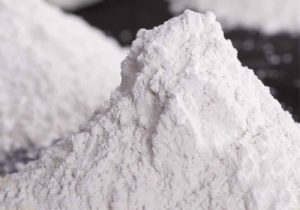
CP-992 Organophilic clay
CP-992 Organophilic Clay, the wet process improved viscosifier and gelling agent . It is a rapidly dispersing.
What Is Bentonite Used For? I hope all the answers on this page will help you with your questions. To be very frank, bentonite is used for paints, coatings, inks, drilling, greases, adhesives and cosmetics. It plays a different role in different applications, mainly to achieve anti settling, anti sagging thixotropy, rheological properties and suspension properties.
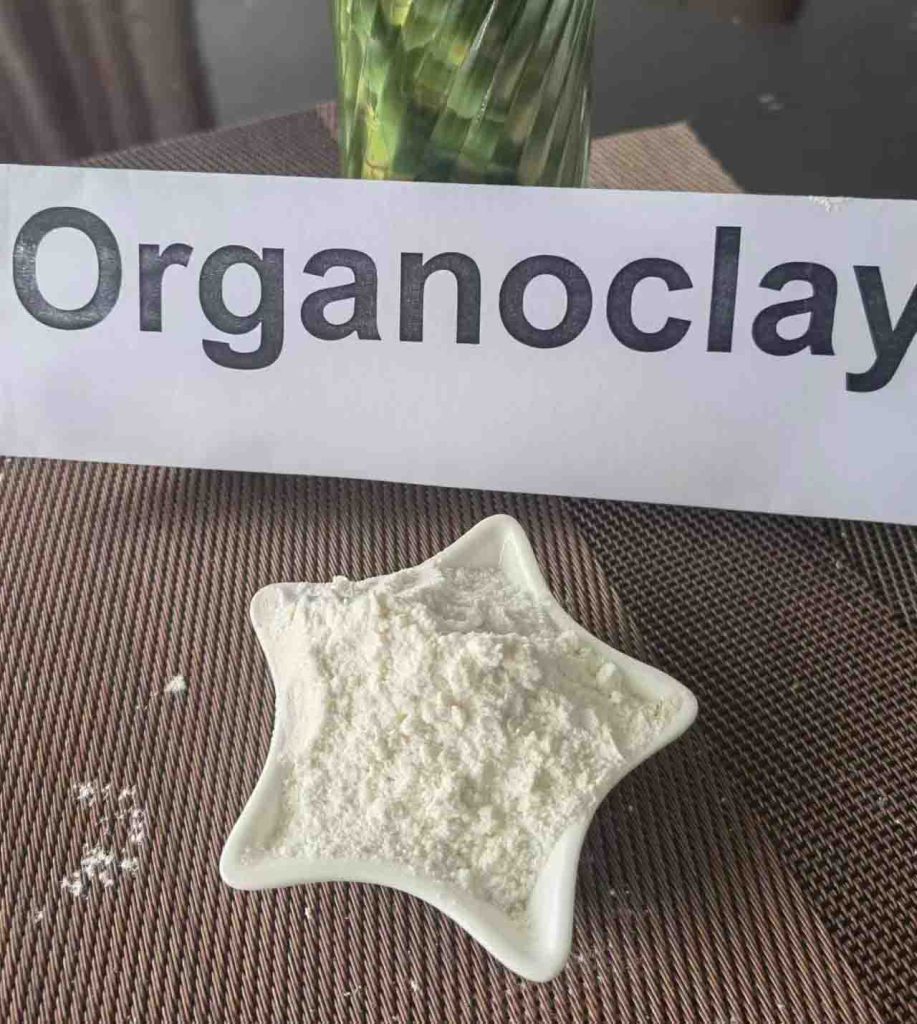

CP-992 Organophilic Clay, the wet process improved viscosifier and gelling agent . It is a rapidly dispersing.

CP-982 Organophilic Clay is an amine treated bentonite with a moderate temperature performance.

CP-150 Organophilic Clay is a self-activating organoclay that disperses easily and performs well in diesel, low aromatic mineral oil, modified vegetable oil, and synthetic base fluid formulations.
What Is Bentonite Used For : Looking for an organic and solvent-based paint thickener? Don’t look any further! Our organoclay bentonite is ideal for your requirements. It is intended to work with a wide range of organic liquids, making it an excellent choice for your company. You can be confident that your paints


CP-10 organoclay is a rheological additive made of organoclay. It is used in non-polar to moderately polar aliphatic and other solvent systems

CP-MPZ organoclays is an modified bentonite that is used in solvent and resin systems ranging from non-polar to highly polar.

The CP-MPS rheology modifier is a type of organo clay rheological additive that is used in solvent and resin systems ranging from non-polar to high polarity.
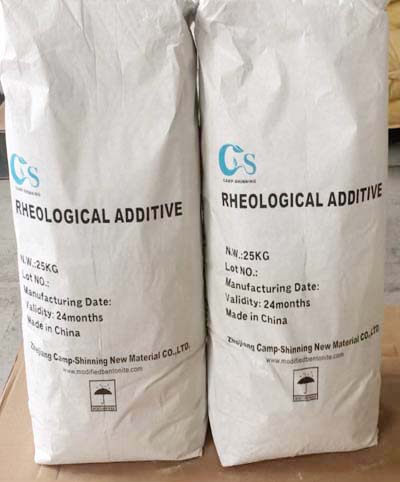
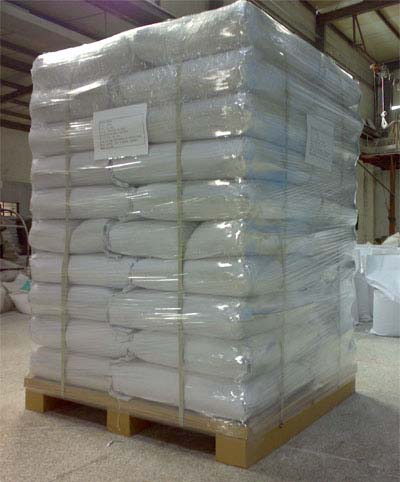
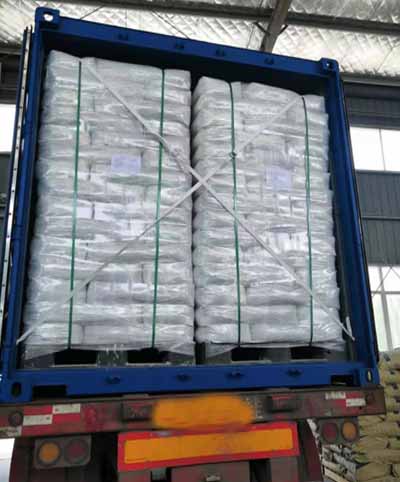
Organoclay Supplier / Manufacturer :
Internet address: https://www.rheologymodifiers.com/
Email address: [email protected]
Whatsapp / Wechat: +86-13185071071
Organophilic Clay Supplier / Manufacturer :

CP-EW Organoclay for Water Based paint. It is primarily employed in water borne paint systems,such as latex paint. So it is a good water based additive in paints,coatings,grease etc.

CP-EWS Modified bentonite It is employed in a water-borne coatings system. CP-EWS organoclay outperforms CP-EW in terms of thixotropy, transparence, and dispersion.

CP-WBS Rheology Modifier is rheological modified bentonite. It is mostly employed in water-borne systems.


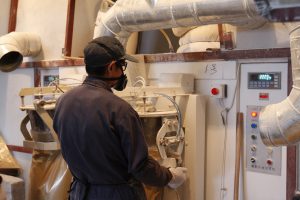
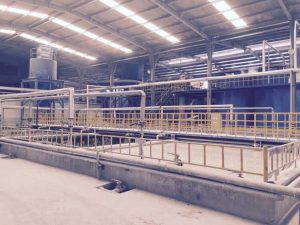

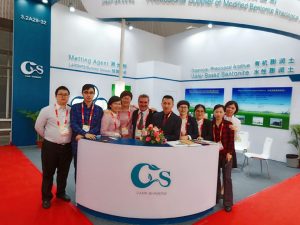
The Organoclay bentonite | Organophilic clay -specialized Zhejiang Camp-Shinning New Material CO.,LTD. and Hangzhou Camp-Shinning CO.,LTD. are subsidiaries of Camp-Shinning.
Camp-shinning concentrated on high value-added, high-technology organo bentonite series products, particularly in research, development, manufacturing, and sales of organic (solvent based organoclay) and inorganic bentonite (water based organoclay).
Our Organophilic bentonite clay finds widespread application in oil drilling mud, paint, coating, lubricating grease, adhesive, construction mortar, cosmetics, and waste water treatment, among other applications. A group of world-class professional users and distributors, such as SUN CHEMICAL,,SIEGWERK,LEHMANN &VOsS, and others, have acknowledged our dependable quality.
Current annual production of organic bentonite clay | organoclay is 20,000 metric tons, while refined bentonite production is 15,000 metric tons.
Our ISO 9001 quality system certification and IS014001 environmental management system certification, as well as our own mine with superior ore quality and production of proprietary technology, ensure the long-term quality and supply stability of our Organoclay bentonite | Organophilic clay.
Our mission is to provide users with superior Organoclay bentonite | Organophilic clay and services and to collaborate with them to achieve success and glory.
Internet address: https://www.rheologymodifiers.com/ and email address: [email protected]
Whatsapp / Wechat: +86-13185071071
Organoclay | Organophilic Clay CP-2 also named amine treated Bentonite.
In diesel oil based fluids,organophilic clay viscosifier CP-2 are used to increase carrying capacity and suspension properties, providing support for weight materials and improved cutting removal. Organophilic bentonite also aids in filter-cake formation and filtration control.
Properties
Composition Organically modified bentonite clay
Physical appearance Off white to tan free-flowing powder
Moisture content (105℃,2hr) ≤4%
Particle size (<76μm or 200mesh) ≥95%
Specific Gravity 1.6-1.8
Advantages
Effective viscosifier and gellant
Aids control of fluid loss to the formation
Increases emulsion stability
Improves cuttings carrying and hole cleaning capacity
Suspends weighting materials and other solids
Confers temperature stability to the fluid
Application
Base oil:
Diesel Oils
Crude Oils
Mineral Oils
Synthetic Oil
Viscosifying drilling Fluids:
Oil based drilling fluids
Invert emulsion fluids
Workover fluids
Completion fluids
Casing packs
Packer fluids
Spotting fluids
Package
Organoclay | Organophilic Clay CP-2 is packed in 50lb(22.7kg) or 25kg/bag or customized,multi-wall paper sacks or Kraft paper bag with PE liner or customized.
Storage
CP-2 Store in a dry, well-ventilated area with temperature of 0℃-30℃. Keep container closed. The quality guarantee period is 24 months.
Notice
The information on use is based on data which are believed reliable, but any recommendation or suggestion made is without guarantee or warranty, since the conditions of use are outside our control. All products are sold on the conditions that purchasers shall make their own tests to determine the suitability of such products for their purpose and that all risks are assumed by user. We disclaim any responsibility for damages resulting from careless or improper handling or use. Nothing herein is to be taken as permission, inducement or recommendation to practice any patented invention without a license.
Internet address: https://www.rheologicaladditive.com/ and email address: [email protected]
Whatsapp / Wechat: +86-13185071071
What Is Bentonite Used For? It is crucial to comprehend the structure of organoclay bentonite before considering its many applications. It also creates a thixotropic gel that aids in preventing the precipitation of inorganic fillers. What Is Bentonite Used For? It has been discovered that organoclay bentonite is effective at removing oil. Oil can be effectively removed from a variety of emulsions, including oil and water, using this natural mineral. This mineral can be made into a powder and used to coat the surface of water. It is possible to create organoclay bentonite with a significant amount of surfactant. The clay is utilized in this concentration. This improves the mineral’s ability to absorb substances. The additional benefit of organoclay bentonite is that it won’t sag or settle even after being kept for a long time. Applications for organoclay bentonite have been investigated in various ways. What Is Bentonite Used For? The clay mineral known as organoclay is a modified kind of phyllosilicate. It has organic molecules that are bonded to the mineral covalently. Organoclay has a lot of surface area as a result. It can successfully separate oil from water thanks to its ability, making it useful in the oil extraction process. Additionally, it acts as a viscosifier for drilling fluids based on oil. Activated carbon cannot remove up to seven times as much oil from water as organoclays can. They can also get rid of polynuclear aromatics, gasoline, diesel, and kerosene, as well as the whole range of petroleum pollutants. In addition, heavy chemicals like phenol and BTEX can be eliminated using organoclays. Synthesis Quaternary ammonium salts and inorganic cations are combined to create organoclays. The quantity of surfactant required is determined using the cation concentration of the bentonite. Compared to unmodified bentonite, organoclay bentonite has a significantly higher carbon concentration. This is the result of organic molecules filling clay galleries. Natural substances including sodium sulfate and potassium chloride, as well as a number of other organic compounds, are found in the composition of organoclay bentonite. What Is Bentonite Used For? As a natural soil stabilizer, organoclay bentonite has a variety of uses. It is frequently employed in the production of building materials as well as the rehabilitation of soil. It is quite effective in adsorbing various pollutants. Different types of organoclay bentonite have different characteristics. Chemical alterations The performance of membrane materials can be improved by chemically altering organoclay bentonites. By adding polymers and branching structures, natural bentonite’s surface chemistry can be changed to produce these compounds. The modified bentonite enhanced its hydrophilicity, porosity, and water uptake capacity, according to research on the impact of polymers on the adsorption of fluoride in water. Bentonite was dissolved in 400 mL of water for this operation, and the necessary quantity of surfactant was added. After 4 hours of stirring and filtering at 80°C, the reaction mixture was finished. The finished product was then rinsed with ethanol and distilled water. After being purified, the produced organoclay was dried at 80oC for 48 hours before being ground into powder. The inorganic ions found in natural bentonite are swapped out for organic amine salts to create organoclay. The tetrahedral structure of the material is composed of octahedral sheets encircled by tetrahedral sheets. This chemical alteration of organoclay bentonita was discovered to be successful in the adsorption of aromatic chemicals among other uses. Furthermore, it can be utilized as an adsorbent for oil spills, slurry walls, and landfill liners. It is inexpensive and simple to modify organoclay bentonite chemically. The substance is easily accessible and works well as a sorbent. Organoclays are easily manufactured and can be used in Pakistan to clean up pollution. The potential is immense as the study of organoclays develops. The chemistry of the surface of the bentonite can be altered to alter the surface properties, according to research on the chemical modification of organoclay bentonita. It was discovered that the surfactant had been absorbed into the clay’s interlayer region, altering the clay’s capacity to bind water. The size distribution of the particles in a raw bentonite sample was identified as having substantial concentrations of non-clay mineral particles at five and eleven mm. The proportion of tiny particles dramatically increased following the NaCl treatment. A high level of purity was also indicated by the presence of two maxima in the purified bentonite. This tiny particle size raises the possibility of using pure bentonite in cosmetic products.
Organoclay Supplier / Manufacturer :
Internet address: https://www.rheologymodifiers.com/
Email address: [email protected]
Whatsapp / Wechat: +86-13185071071
Organophilic Clay Supplier / Manufacturer :

CP-180 organoclay is an organo clay rheological additive (modified montmorillonite) designed specifically for use in solvent-based systems

CP-34 organoclay is a modified bentonite that has been specifically designed for use in solvent-based systems.

CP-EDS modified bentonite is a kind of organo clay rheological additive. It is used in systems of medium polarity and high polarity system.
What Is Bentonite Used For?